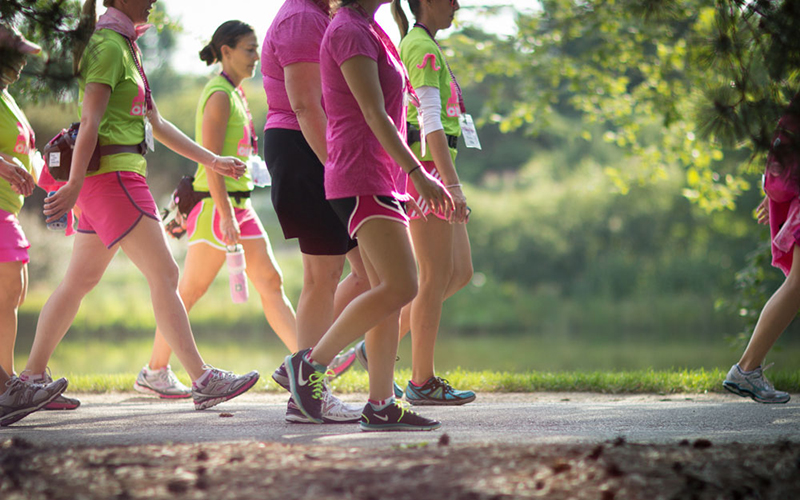
Susan G. Komen Arizona will be closing their doors July 31. Future walks and races, like this Chicago one, will be canceled. (Photo by Susan G. Komen via
PHOENIX – An annual race to support breast-cancer research has run out of steam in Arizona, but other cancer awareness, fundraising and support efforts are expected to stay on the move, advocates say.
Susan G. Komen Arizona, the state chapter of the national breast-cancer research and support charity, is shutting down July 31 as funding and participation in a race that once attracted tens of thousands of runners dropped considerably.
Seven years ago the annual 5K race drew 30,000 runners. But only 7,000 registered on what would have been the group’s 25th anniversary run in September. Runners were required to raise money for the Arizona chapter to run the race.
The Komen race focused on breast cancer, but several other Arizona organizations, including the American Cancer Society and medical facilities will continue their work. The Mayo Clinic, Cancer Treatment Centers of America and Banner Health are among those providing cancer services and research.
About 10 national organizations also contribute to cancer research, donations and grants, according to the Arizona Department of Health Services Cancer Registry.
The national headquarters of Komen will continue to provide its same services, according to Christina Mencuccini, executive director of Komen Arizona. They will join other national organizations that allocate grants to Arizona cancer research and support like the National Cancer Institute, The American Cancer Society, The National BC Foundation, according to the report.
Support, Sadness, and Shock
Some former race participants said they are sad the race will end after 24 years.
“As a survivor that was the only place where I could walk and be known as a survivor and be proud,” said Connie Marino.
Some were surprised.
“It’s shocking,” Marli Bennett, a Phoenix race participant for seven years, said. “There used to be so many people at the races that it was overwhelming.”
Fun runs falter
Signs of the chapter’s struggle emerged in 2014 when the organization decided to shut down the Arizona three-day walk that drew participants from across the nation. The 60-mile walks in other states also were canceled in recent years. The national Komen organization hosted 14 three-day walks at its peak and now hosts seven, said Bennett, who volunteered and participated in many of the three-day events.
“They said they wanted to dedicate more of that funding that would go to hosting those events to their resources that would make a bigger impact,” Bennett said.
The Race for the Cure runs across the country have raised more than $100,000 in 2017 and nearly $75 million overall, according to a Susan G. Komen report. The races vary from 5k walks to the three-day walks in major cities like Dallas and Washington, D.C. that try to encourage families and friends of survivors to participate and donate.
The Phoenix numbers began to dwindle.
“Around seven years ago we had over 30,000 participants in the races. This year it was around 7,000,” Mencuccini said.
Similar races raise results
Bennett believes the organization struggled because breast cancer is a niche among a spectrum of cancers that affect millions.
In Arizona, about 4,100 new cases of breast cancer were reported in 2012, according to the Cancer Registry report. However, there were almost eight times as many cancer cases reported in the state that year, according to a University of Arizona report.
Bennett, who also volunteers with the American Cancer Society, has seen an increase in their participants and funding for their Making Strides for Breast Cancer runs.
“Last year was the first run to hit over $1 million,” said Brittany Conklin, spokeswoman for the cancer society. “We also saw around 16,000 participants.”
The organization hosts about 1,000 events annually that raise about $80 million nationally, according to their 2015 annual report.
The work will go on
Komen Arizona is the largest private grantor of breast cancer funding in Arizona, according to a 2015 Komen report. About $25 million has been donated to “local life-saving mission initiatives” while the chapter has been open.
But help will continue, said Debbie DiCarlo, chief executive of Cancer Support Community, which works with Susan G. Komen to offer patients and families emotional support and financial help.
“They were just another piece of the puzzle,” DiCarlo said. “I think what is going to come out of this is the word being put out there that we need to stand together.
“At the end of the day it’s uncomfortable. But I think the good work will continue.”